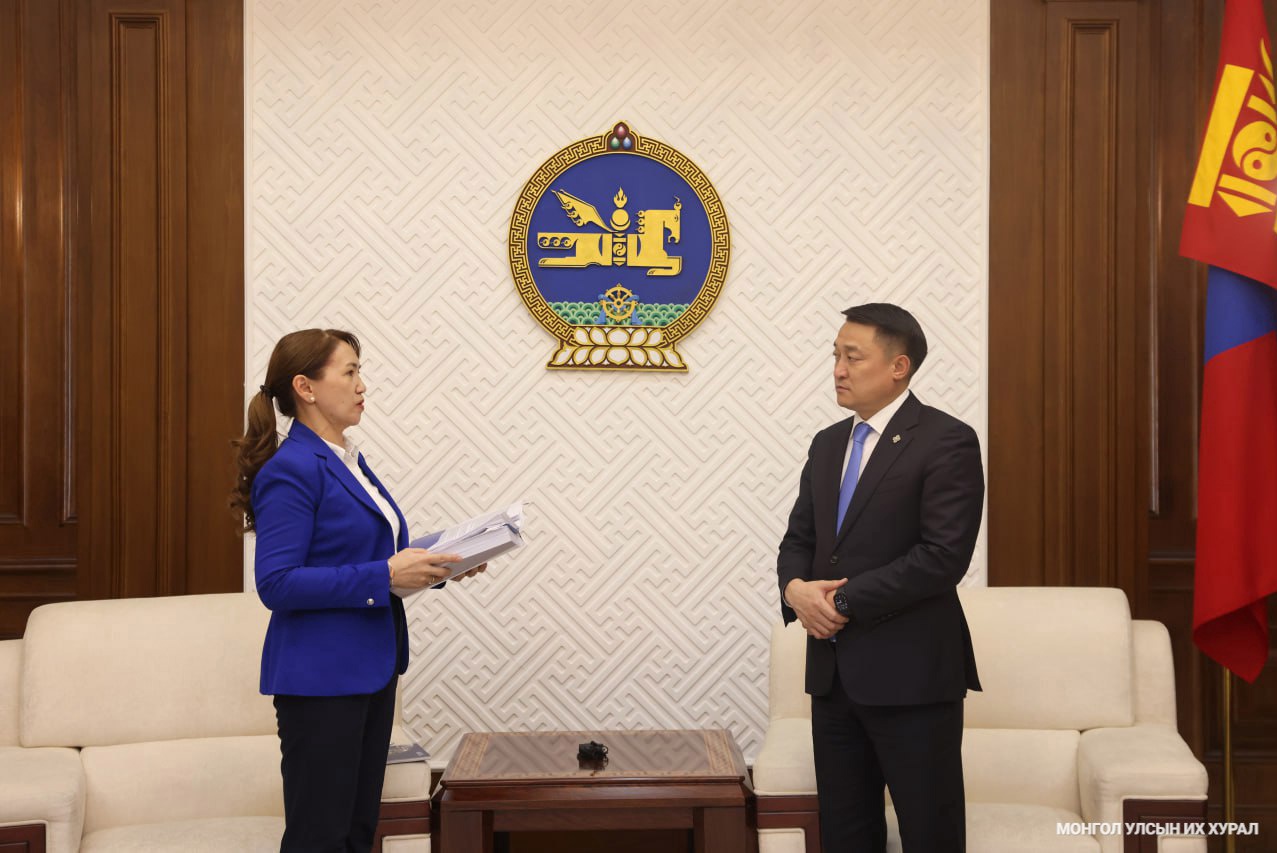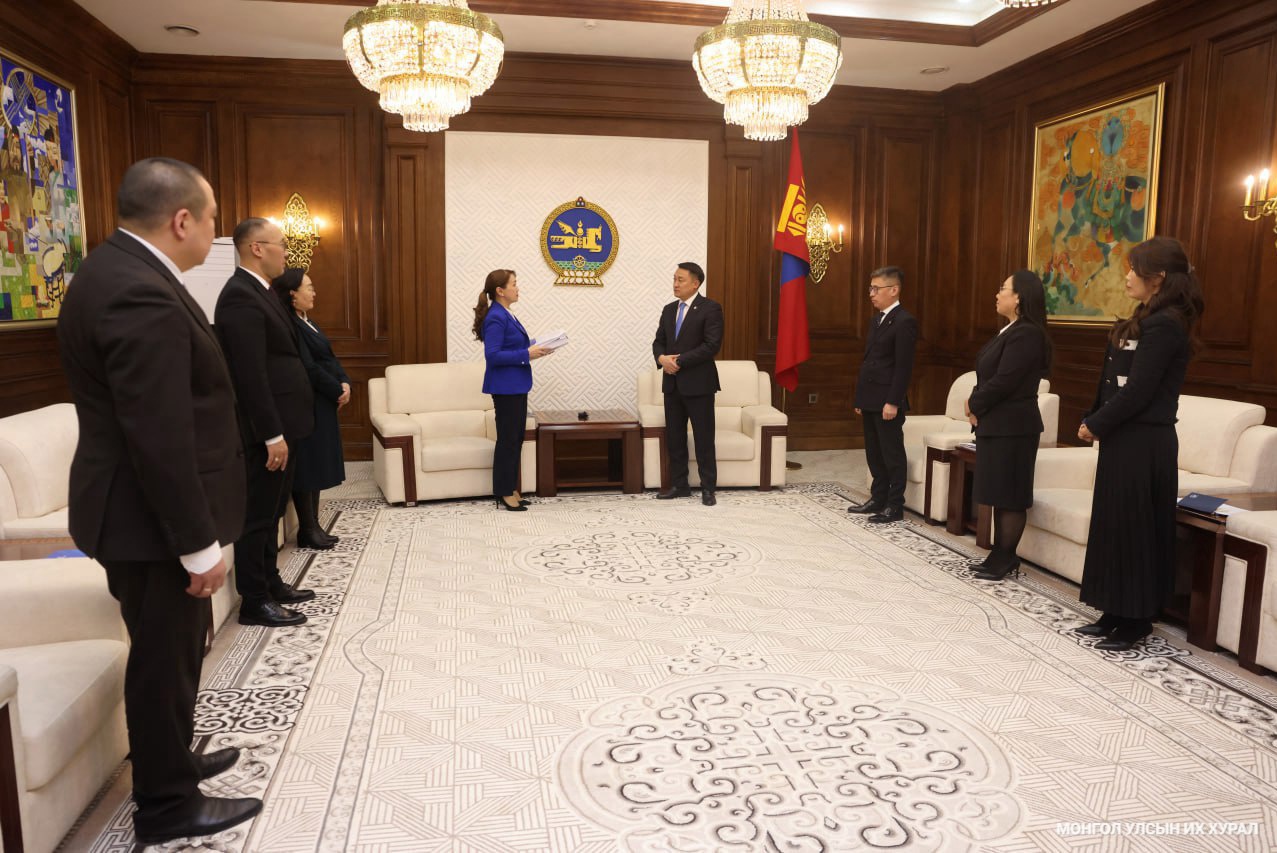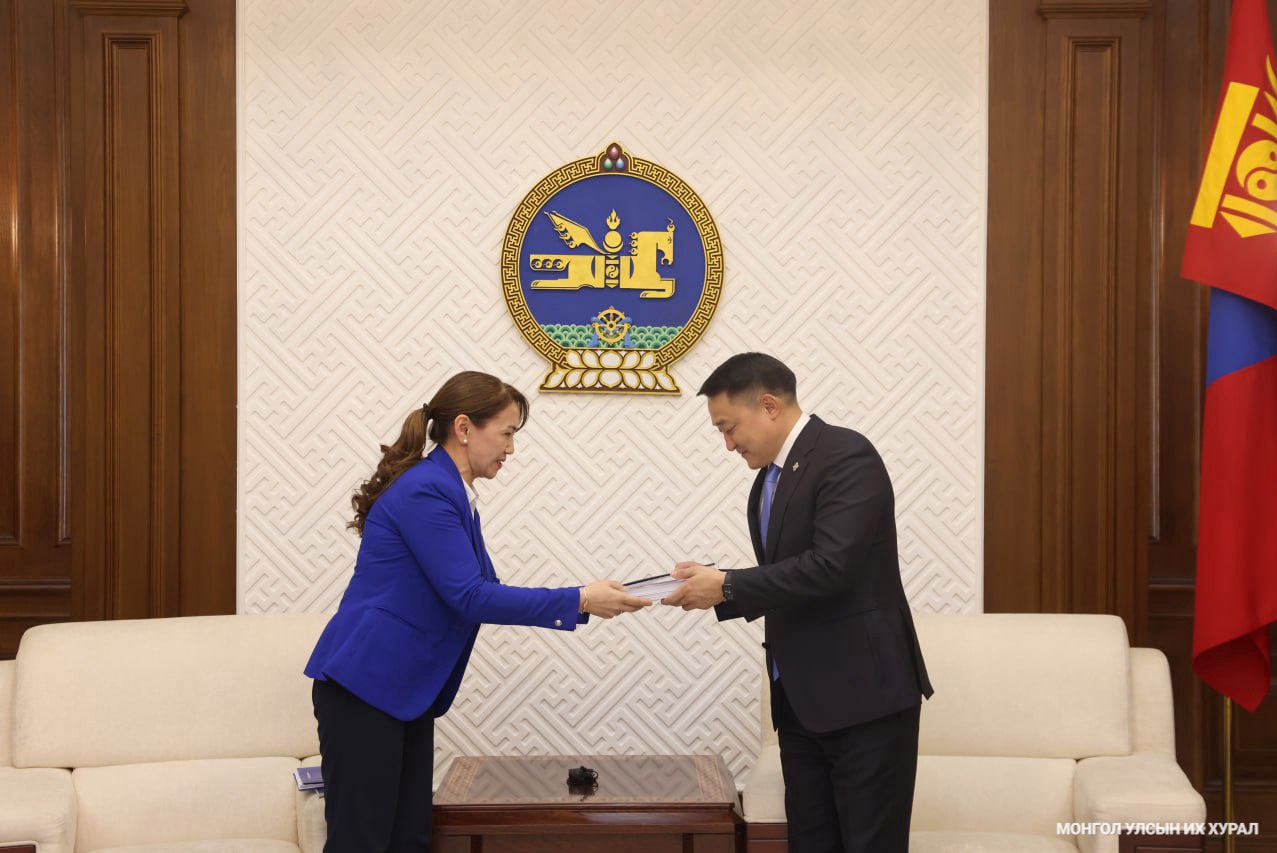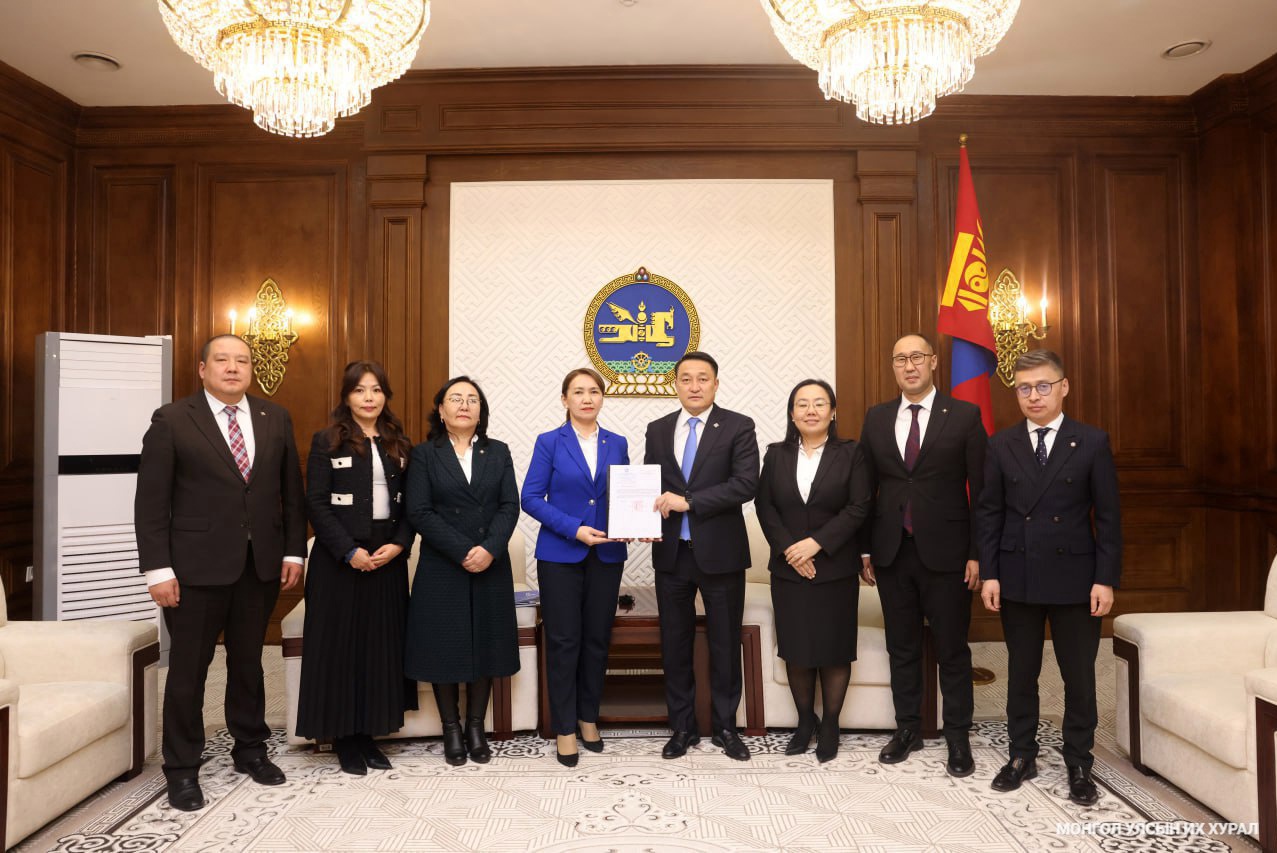Today (2025.03.31), the National Human Rights Commission of Mongolia submitted its 24th report on the situation of human rights and freedoms in Mongolia to Chairman of the State Great Hural (Parliament) D. Amarbayasgalan.
The report, compiled by the National Human Rights Commission, covers six chapters: “The right to vote and be elected: 2024 electoral process,” “Current situation of human rights defenders, lawyers, and journalists,” “Human rights and digital technology,” “The current state of gender-based violence committed using technology and issues to address,” “Some issues related to the rights of child victims in criminal proceedings involving sexual violence,” and “Implementation of the right to a fair trial.”
Chairwoman of the Commission D. Sunchid introduced the chapter on “The right to vote and be elected,” explaining that it analyzes the 2024 regular elections for the State Great Hural and the Citizens’ Representative Hurals of aimags, the capital city, soums, and districts in terms of whether they upheld the fundamental principles of universal, direct, and equal suffrage by secret ballot.
In the chapter “Current situation of human rights defenders, lawyers, and journalists,” the Commission puts forward recommendations and proposed solutions based on necessary research findings to enhance the safety and legal guarantees for lawyers and journalists to carry out their professional duties.
The chapter “Human rights and digital technology” reviews the protection of personal information, privacy, and the right to inviolability in the digital environment. The Commission also presents findings and concerns regarding gender-based violence committed using technology and outlines areas requiring urgent action.
Furthermore, the chapter “Some issues related to the rights of child victims in criminal proceedings involving sexual violence” is based on targeted research, including interviews with child rights specialists, researchers, and professionals providing assistance to victims. Based on statistical data and oversight results, the Commission has developed recommendations to strengthen child protection and address priority issues.
The chapter “Implementation of the right to a fair trial” covers the entire process from the time an individual is charged in a criminal case until the sentence is served. As more than 50 percent of complaints submitted to the Commission concern violations of the right to a fair trial, the report presents evidence-based recommendations for further action.

 Eng
Eng  Монгол
Монгол





